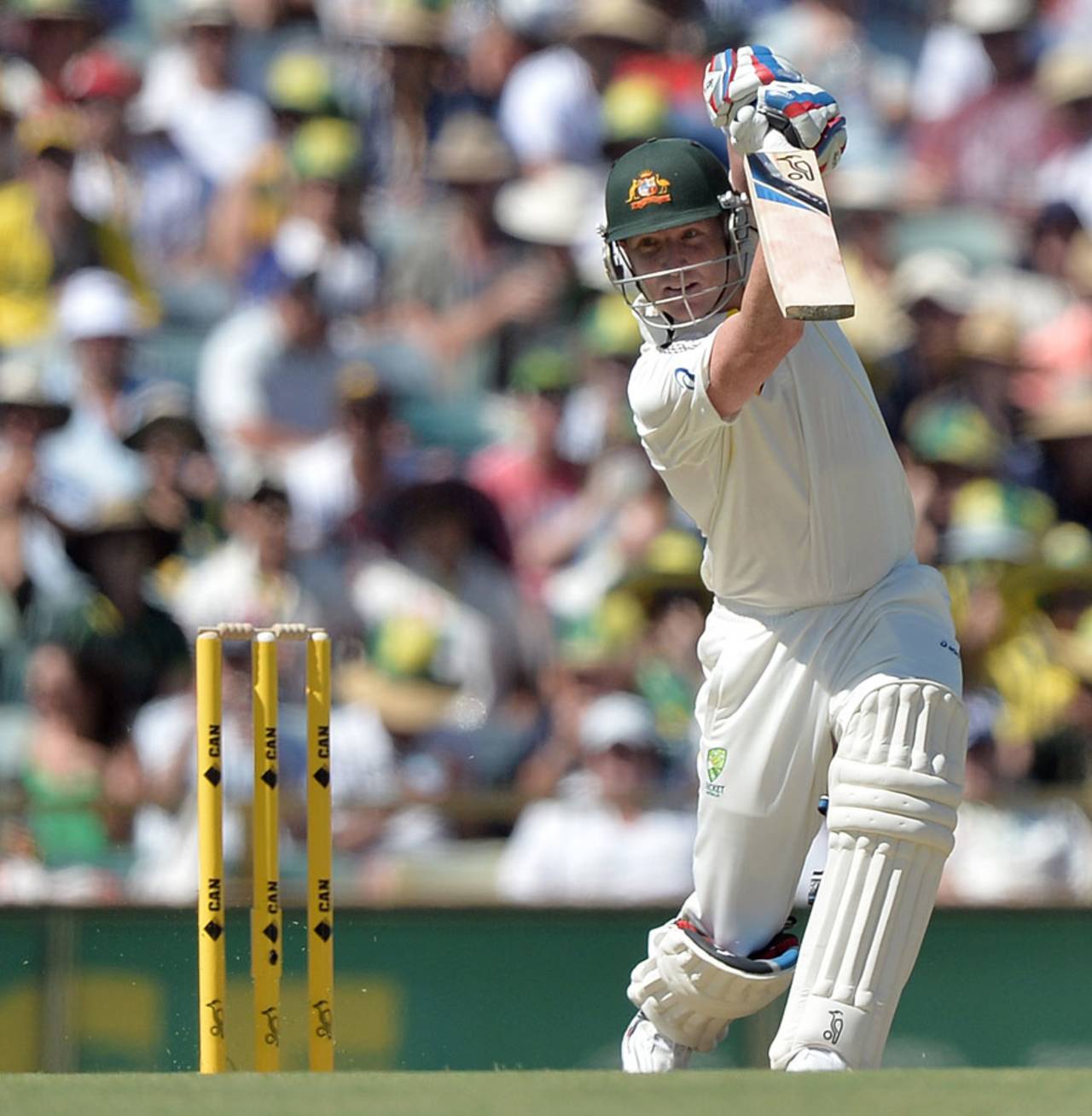I feel bad for never loving
Brad Haddin enough until now. I fell in with the crowd, I guess. Stopped thinking for myself. The complaints didn't seem entirely unreasonable - dropped catches that seemed somehow profound and symbolic of team-wide decline, the haphazard surrender of his wicket when patience and application were needed. He was so selfish, you see.
We were wrong, though, or maybe more wrong than right. We were approaching the problem, or what we thought was the problem, from the wrong angle. Our solution was actually the real problem. We underrated his glovework, by no means beyond reproach but certainly a beacon of technical proficiency once we'd got a proper eyeful of his replacement, Matthew Wade. Forget that Wade had spent his comparably short career manfully learning how to keep on the job; he just had to be picked. The time seemed right for change but what we saw was not the future but a mirage in the distance.
Haddin has always suffered by comparison, to the past and to the unknown future. He doesn't bat as well as Gilchrist, obviously. Barely any keeper who has walked the earth has. Thus Haddin's average (still higher than many more stylish and talented specialist batsmen), his output of game-changing hundreds, and his lack of Gilchrist's bowler-destroying, jug-eared charm handicapped him from the start. He wasn't lovable. Sometimes he didn't even seem likeable.
The detractors eventually reached a deafening verbosity. Usually it was not the keeping efforts but the manner in which Haddin got himself out while batting that rankled. That was it, too: we thought he was always getting himself out. The bowler had no say in the matter. It's one of the fatal flaws of many of us cricket fans really: berating a batsman for his wicket-losing frivolity. Often we do so while backing replacements whose ability to even get in at the highest level is unknown. The latter is the hardest part.
Haddin's ability to influence the result of a game were in clear evidence during the recent Ashes, His 94 in the first Test
in Brisbane lifted Australia from 100 for 5 to 295. England crumbled in reply, and he followed that with a different type of Haddin innings, the one where he punishes a team that's already down for the count: 53 at nearly a run a ball. That dose was repeated in
Adelaide, with 118 flattening a weary attack that had already toiled for 85 overs before his arrival.
In Perth, Australia wrestled back the Ashes but only after Haddin and Steve Smith turned collapse into a state of command: 143 for 5 had become 385. The same pair offered a repeat dose in the
fifth Test as English spirits hit rock bottom. By now it seemed more than a case of coincidence or good fortune.
We might not have seen it coming but it certainly shouldn't have been a surprise. Upon Haddin's return to the side following a period of abject humiliation for Australian cricket, Michael Clarke spoke of his relief at having his trusted lieutenant back at his side. It was becoming clearer to see why. So often Haddin dragged Australia's stuttering middle order to safety and he did it by attacking and by trusting his instincts.
Those instincts are what we discounted when we lambasted him for that
Cape Town brain-fade in 2011. At the time we thought he was the antichrist. With that mad, irresponsible shuffle down the wicket and lazy swipe at Vernon Philander, Australia were flatlining and 18 for 6. How could he play such a rash stroke at that time of need? Did he even care? Looking at the shot again now and imagining Haddin making firm contact rather than feathering an edge, I'm reminded of several moments this Australian summer gone. It's exactly the kind of shot he often played against England, actually. Sometimes it's difficult to take the good with the bad.
Late on day one of the fifth Ashes Test in Sydney, rumours circling the ground prompted local broadcasters Channel Nine to openly ponder whether Haddin was considering retiring at the end of the game, thus ensuring himself the perfect swansong from the Test arena. As recently as a year earlier, this development mightn't have drawn anything other than ambivalence, but suddenly it seemed like a wrench. How would Australia cope without him against sterner opposition away in South Africa?
It turned out not to be true, but in his 37th year Haddin can't go on forever and certainly not at his current rate of output. Australia plainly need him and the replacements on hand suddenly don't seem so tantalising. That feeling of permanency was a while in coming but it had dried into concrete by the end of those ten Ashes Tests.
Ever has the path to being embraced been rocky for Australia's Test glovemen. The first, Jack Blackham, was rated so low by his team-mate Fred Spofforth that the "Demon" initially refused to take part in the second Test of 1877 unless his trusted off-sider Billy Murdoch was behind the wicket. Spofforth considered Murdoch the only man capable of gloving his bowling, but Australian captain Dave Gregory stuck with Blackham, his confidence holding firm.
With the faith of Clarke and now a whole lot more of Australia, Haddin might now know what comfort that brings.
